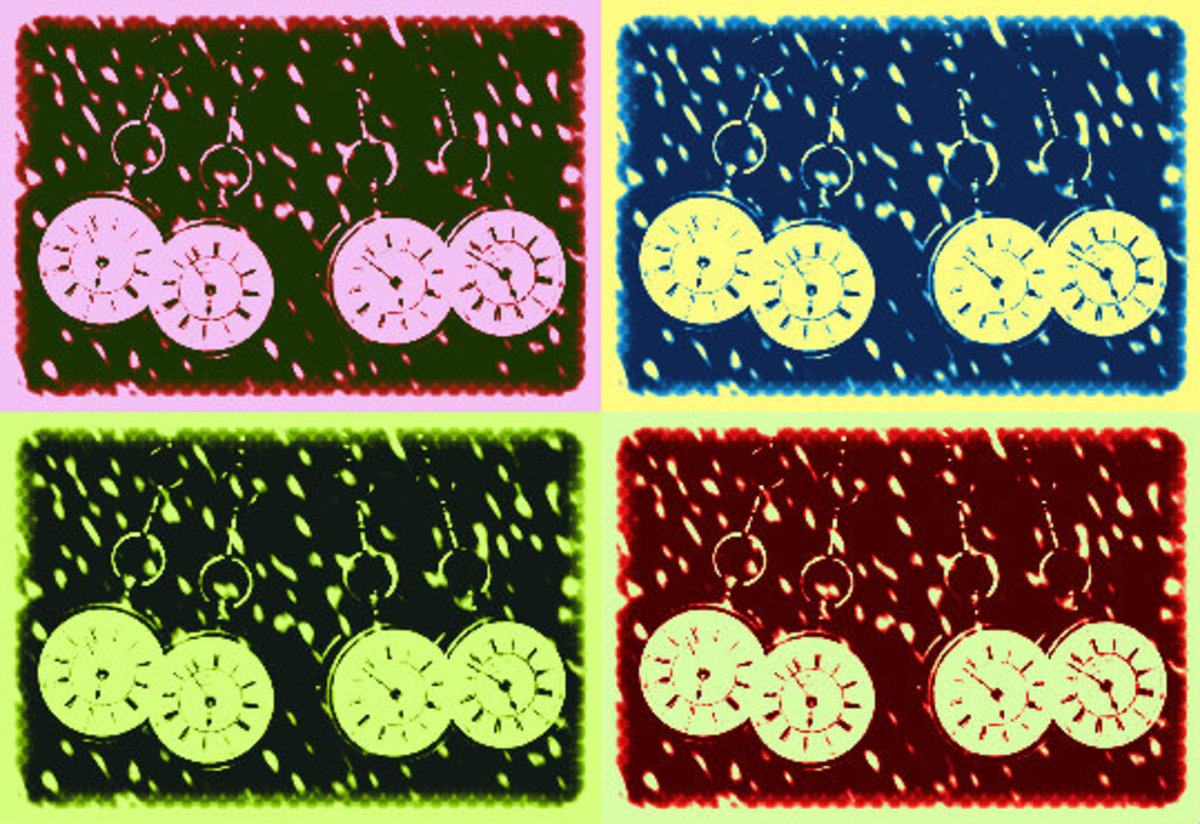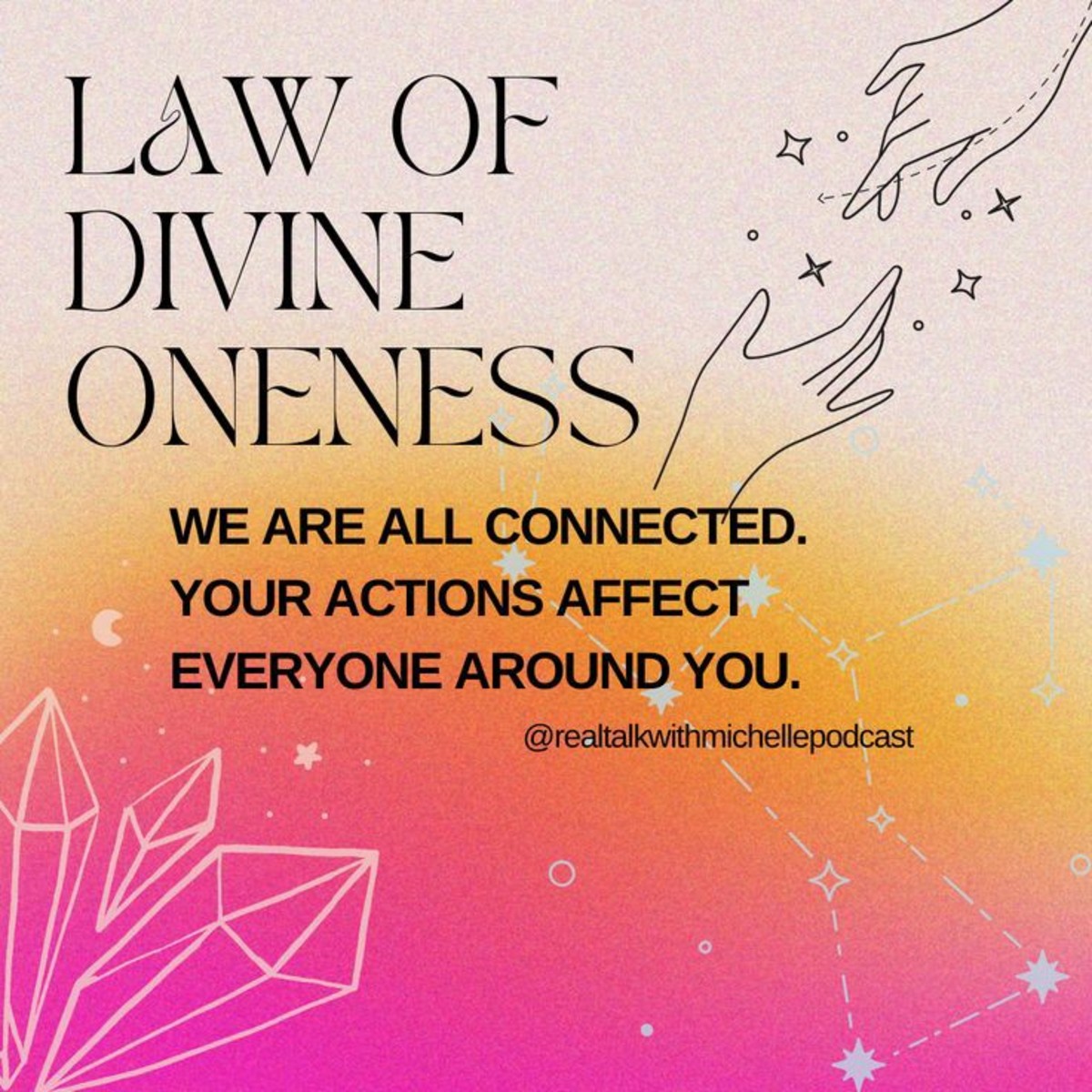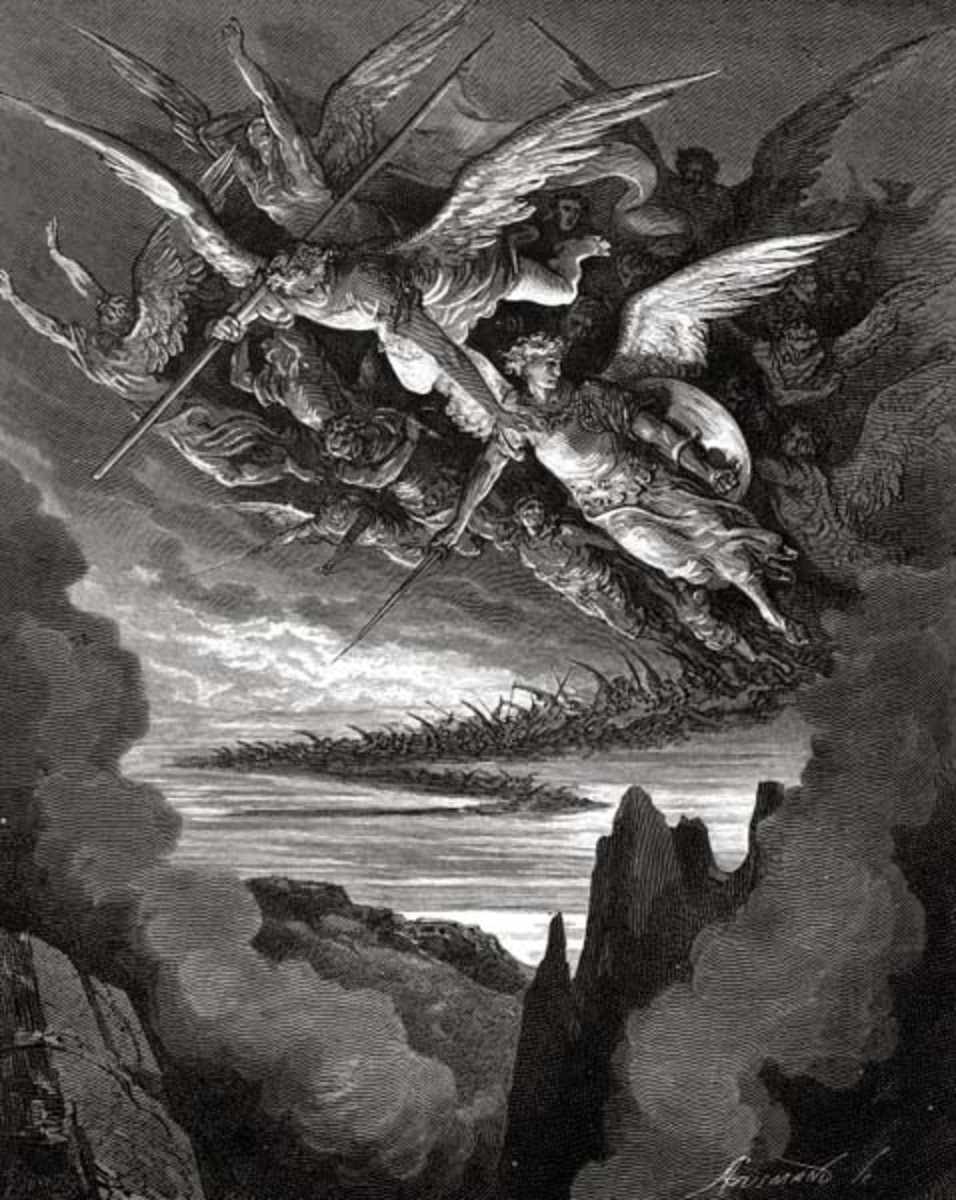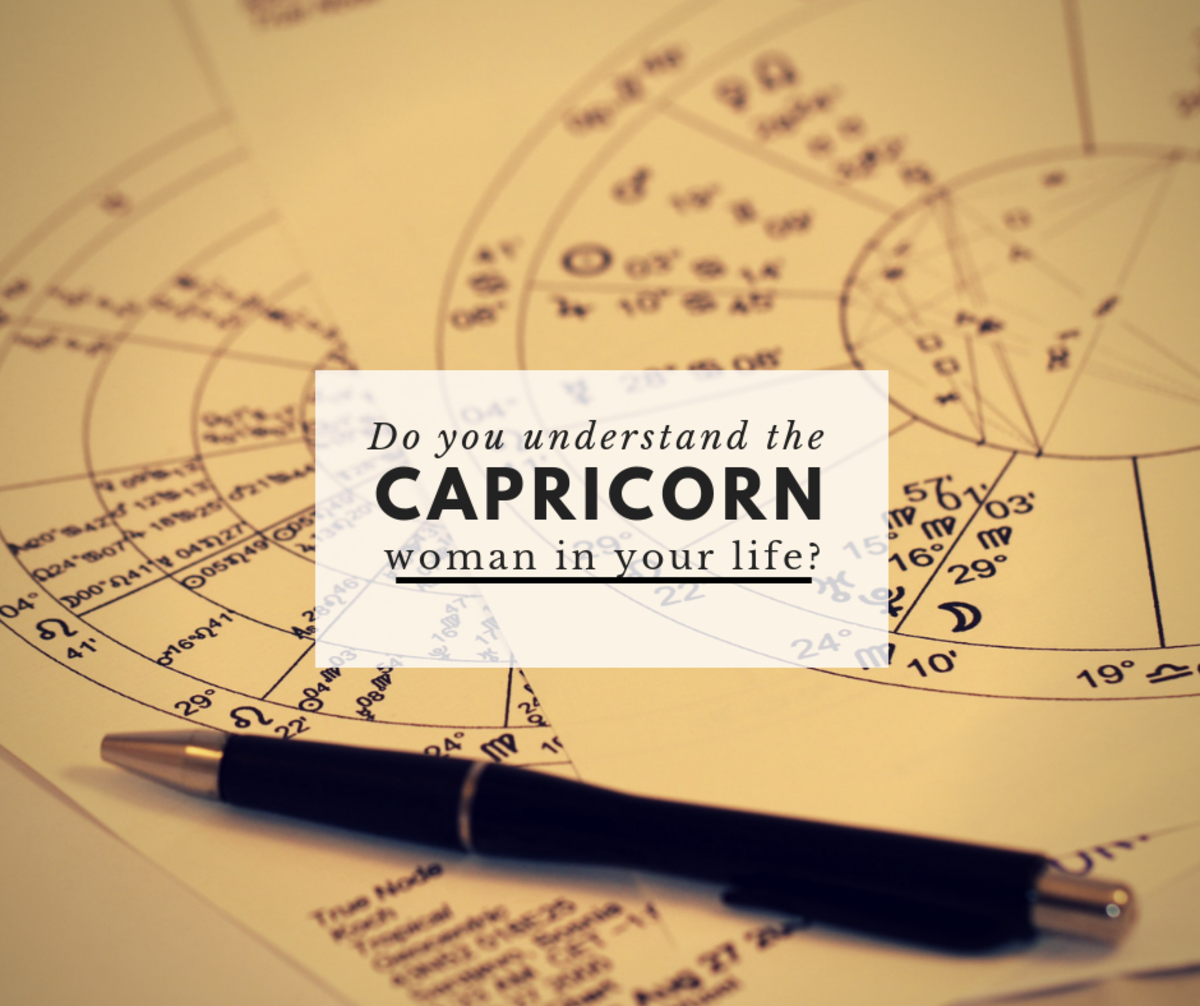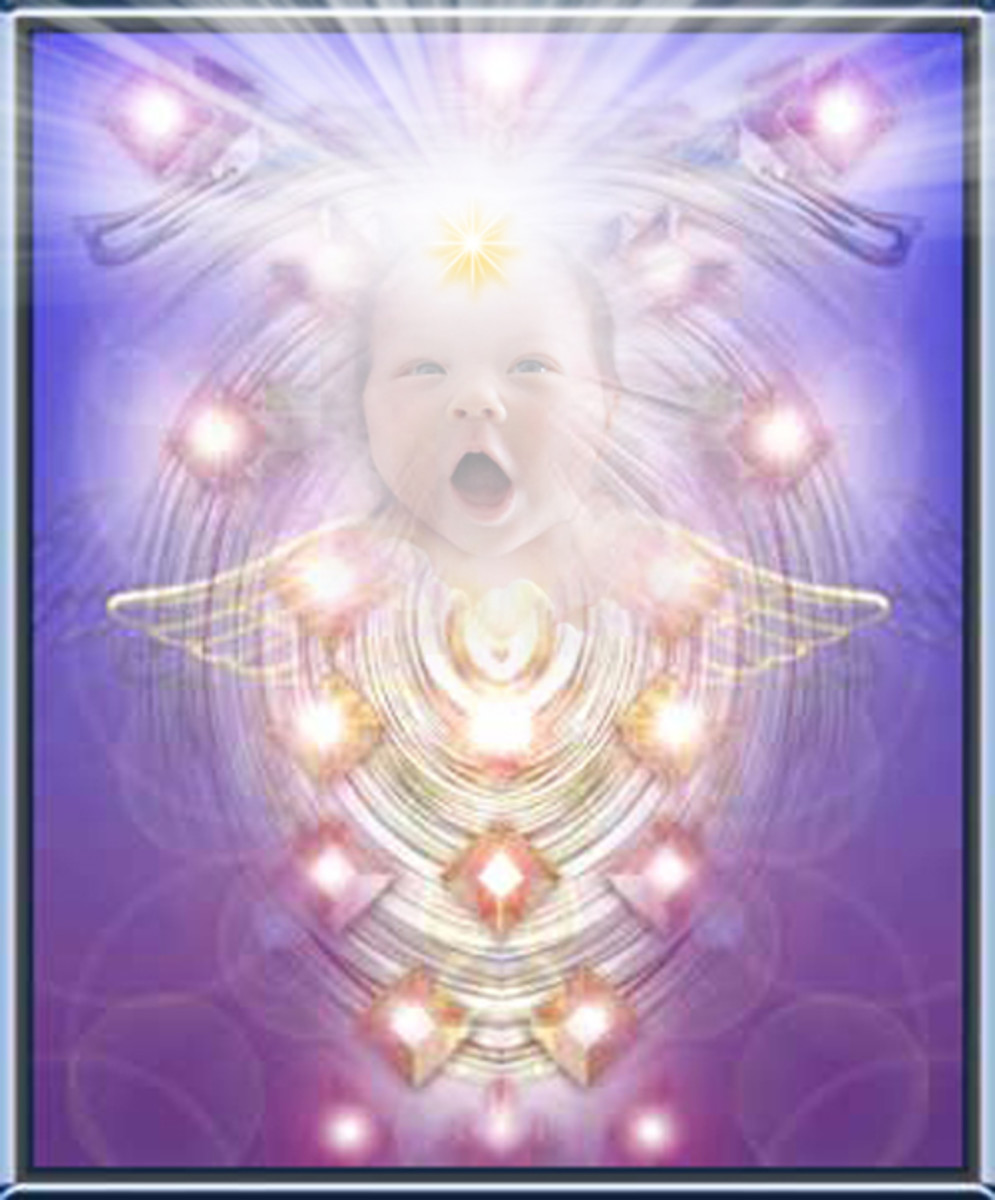The Devil IS the Details: The Illusion of Evil
We've seen that evil does not exist; that it's just a row of zeroes with no numer to the left of it. Fine, but what is it? If it is nothing, then what's all the suffering and misery in the world about, anyway? How can something which doesn't exist have a nature in the first place?
The thing which we represent with ideas like darkness (for even darkness itself is not actually evil) is simply a miscontextualization, or an illusion fostered by miscontextualizing existence. In the Japanese mythos, evil is a disharmony; an imbalance. The Shinto religion recounts the story of the sun goddess Amaterasu ("[that which] illuminates Heaven") and her wicked brother, Susanoo (the reckless, abusive storm deity). Christianity posits a perfect, utopian Creation, set into suffering by a choice of a Divinely-created angel to rebel against its Maker. Perfect harmony, set into discord by disgraceful choices and behavior, is a common theme. And for good reason.
Every choice we make is an assertion about ourselves. When our choices proclaim that we are ignoble, disgraceful, and unworthy, what we're really saying is that we are something other than that which the Divine created us as. We're given everything we ask for in Eternity, but choices like that aren't really asking for something, they're simply asking for something which does not exist (suffering and the like). Instead of a supplication to the Divine, it is more a rejection disguised as a request. Loveless choices reject what is, proclaim the existence of something the Divine never created and which is impossible in the Divine order of Creation, and is a demand for the impossible.
When we choose what could never be, we seem to get it. Spacetime abounds with joyless, loveless things which have no meaning, and no true existence. Spacetime itself is a context which seems to allow for these illusions. But consider for a moment the context for these sorts of choices. We attempt to assert a context where something other than complete satisfaction, joy, love, meaning, and perfection exists. We adopt a mindset that accepts a context at variance with what, Divinely, is. And we seem to just keep going in that direction, taking one perfect whole and dividing it into smaller and smaller bits.
The globe is a great example of this. Here we have Earth, in all its natural grace, beauty and splendor. Of course, when we think of the world, we generally tend to limit our scope in terms of above-sea landmass. We consider the seas and atmosphere, and that below-ground, when we consider them at all, as being unimportant, negligable, useless from our perspective and therefore there only, primarily, as a technicality. Then we look at the landmasses, and contexualize them into various continents. We look at each continent primarily in terms of political boundaries, and slice our perception of the world into smaller and smaller pieces. Countries, cities, landmarks. Houses, rooms, and when we get to that scope, furniture. We've taken an entire planet and, in contextualizing it only in terms of what is useful and meaningful and relevent to us (the "us" we're used to thinking of ourselves as, at any rate) we've redefined it into a bunch of tiny, almost useless bits. Political borders may have no actual existence anywhere but on a globe or a map, and yet we send untold numbers of people to slaughter and be slaughtered by other people to keep the idea of these borders in place.
We do essentially the same thing with the entirety of Creation. We know that ultimately, only Divine perfection actually exists. All else is meaningless delusion. But we choose that delusional contextualization anyway. We choose it in our intentions, when we attack the idea of dignity with undignified behavior, when we attack the idea of freedom by encroaching on others, when we attack the idea of worthiness by making choices which are disgraceful and unworthy of us. "Attack" probably isn't the right word; you can't attack something which exists with something that doesn't, all you can do is reject one in favor of the other. You can't fight the facts, but apparently you can choose to ignore them. And so, spiritually, we live as tiny Third World countries... barren of natural resources, full of unsatisfied needs, inhumanely dependant upon the forces and whims of others around us who are stronger than we are, and ultimately at the mercy of the merciless. That is the context we have chosen in our lives, an attatchment to this absurd and sad context strengthened by loveless choice upon loveless choice, piled high and recited like a mantra to ourselves. We have taken the perfect, Divine totality of our existence and disassembled it into a lot of useless component parts which serve no purpose. This is what it means to live without integrety; nothing in our lives is integrated by a purpose larger than ourselves.
The founders of the Shinto religion knew this quite well. Amaterasu is said to have been so disgusted by her brother's wicked deeds that she shut herself off in a cave, plunging the world into darkness. Without her, everything began to wither and die. Something had to be done, and eight million Kami (nature-spirits, or worldly archetypes) gathered outside and tried to lure her out. They made merry, singing and dancing, put a jewelled tree outside her cave on which was hung a sacred fabric, positioned a mirror outside the entrance, and started to proclaim that the sun had returned. One of them even set a rooster crowing. When she approached the entrance of her cave, she saw her own reflection in the mirror, and it looked as though the sun had come out. She was in such adoration of her own image in the mirror, having never seen it, that she said omo-shiroi, which means both "white face" and "fascinating". The Kami then barred the cave behind her.
Christianity acknowledges that we must "stay on the vine", or else we shall surely wither and die. When we start contextualizing by something other than the Divine order of things, and asserting it as true, we create a fiction with our own choices and then proceed to dwell in it. Nothing "actually" happens, but it appears to from our subjective perspective. Ultimately, it is the choice for our perspective to be subjective that fosters the illusion; we chose it. Were we still integrating with the Divine whole, our perspective wouldn't seem to be subjective. But alone, in the dead of night, one can see all sorts of shadows and interpret them fearfully. Like the Tibettan tulpas, these fearful interpretations are manifested for us, because fear is lovelessness and interpretation is essentially choice; we make a loveless choice, and seem to get exactly what we have chosen.
What's the solution? Well, there is no solution. Sorry! No solution, because there is no problem. The idea of problems is a fiction, a bunch of zeroes. But having invested in them, we can of course divest ourselves of them at any time. We must forget lovelessness in order to remember love. We must not only have rote knowledge of the Divine order of things, we must invest in it with the only currency we have: our choices. Rote knowledge without application is about as useless as a map without a journey, and for the same reason.
It's a pretty prevalent context we've invested ourselves in. We've subscribed to it strongly enough, time and time again, to look out into a Divine Eternity and see, in its place, walls and floors and details and Divinely graceful beings imprisoned in sacks of flesh.
The wages of sin are indeed death.



